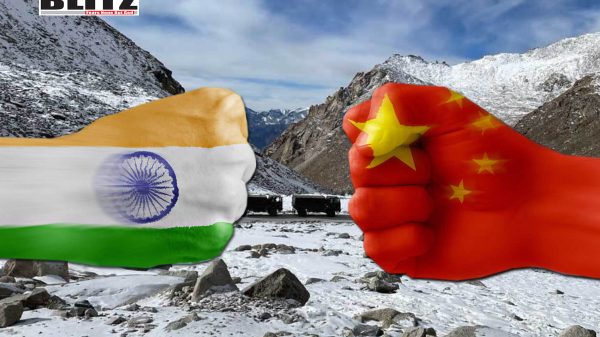America’s regime-change attempts in Bangladesh
- Update Time : Wednesday, September 27, 2023

In recent months, Bangladesh has found itself at the center of political scrutiny, with allegations of regime change attempts by the United States casting a shadow over the nation’s democratic process. These allegations, made by Bangladesh Prime Minister Sheikh Hasina in April, have raised questions about the intentions and consequences of US involvement in Bangladeshi politics.
Bangladesh PM’s assertion that the US is attempting to eliminate democracy and install a non-democratic government has triggered a diplomatic back-and-forth between the two nations. The backdrop to this tension includes the US criticism of human rights issues in Bangladesh and reports of discontent within the ruling Awami League, despite the country’s notable economic progress under Sheikh Hasina’s leadership. Notably, India has also expressed concerns about US interference in Bangladeshi elections, lending credence to Hasina’s allegations.
In May, Secretary of State Anthony Blinken added fuel to the fire by announcing visa restrictions on Bangladeshi officials, a move met with both reassurances and objections from Hasina’s government. While countries have the prerogative to control their borders, such actions against government officials are usually accompanied by concrete justifications, rather than unilateral accusations of democratic backsliding. In response, members of the Bangladeshi government provided video evidence of the opposition’s intent to disrupt elections, calling for equal application of the new American visa policy to both government and opposition figures. This situation has raised questions about US concern for obstructions to free and fair elections in a democracy, regardless of the source.
The issue of trade and exports has been a consistent topic of discussion between the US and Bangladesh. Dhaka has been compelled to release statements to appease the U.S. government, even as it accuses Washington of fomenting unrest with the aim of changing the central government. In 2021, the US imposed sanctions on officers of Bangladesh’s Rapid Action Battalion (RAB) and the Bangladesh Police. Notably, Bangladesh was excluded from the US Summit for Democracy that same year. However, senior US state official Donald Lu’s visit to Dhaka earlier this year suggested that these sanctions may have had some impact, with indications that the RAB had been reined in as a result of US actions.
Interestingly, the US appears to focus on issues other than religious fundamentalism in its criticism of Bangladesh. Despite concerns over the destruction of temples and the dwindling Hindu population, the US State Department has chosen to highlight the Rohingya refugee situation and internal political disputes. This selectivity in focus has raised eyebrows.
While challenges in the Bangladesh-US relationship existed before the Biden administration, the change in leadership in 2020 has brought new complexities to the forefront. Accusations of regime change by a sitting Prime Minister cannot be taken lightly. Furthermore, the US now references allegations by the Bangladeshi Opposition, led by Khaleda Zia’s Bangladeshi Nationalist Party (BNP), as evidence of political persecution. Citing opposition narratives within a democratic nation by an international entity fuels suspicions of foreign interference, a concern shared by many democracies worldwide. Given the US’s involvement in “Color Revolutions” in various countries, the fear of such attempts on their own soil is understandable.
The implications of the US taking a confrontational stance towards Bangladesh are significant. This approach risks pushing Bangladesh closer to its largest trading partner, China. While the strong relationship between Sheikh Hasina and India’s Narendra Modi is well-known, India may not be able to fully replace China’s role in Bangladesh’s economy. The volume of Bangladesh-China trade is nearly three times that of Bangladesh-India trade. Therefore, the US’s antagonistic stance, despite ongoing Chinese activities in the region, raises concerns.
Puppet governments, as history has shown, often serve the interests of Western corporations at the expense of citizens and national sovereignty. Democracy, imperfect though it may be, is built on the principles of free and fair elections. The United States, as a prominent democracy, should exercise its diplomatic, media, and trade power to support rather than undermine elections in sovereign democracies. All democracies have their flaws, and the US cannot claim to lead the free world while promoting undemocratic alliances in other democratic nations.
The people of Bangladesh have the right to choose their leaders through democratic means, and the world will be watching as the 2024 elections approach. In the meantime, American actions are seen by some as a clear threat to the stability of Bangladesh’s democracy.















Leave a Reply